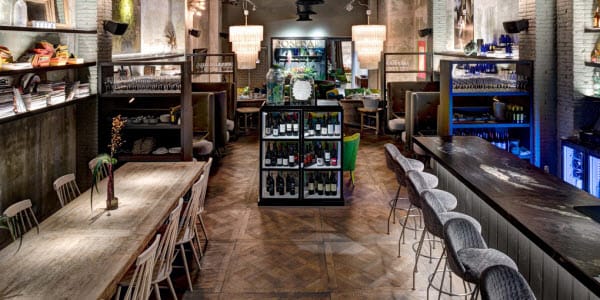Sometimes, success of a restaurant concept is not always built around being the best in any category. It takes a bit of hustling, thick skin and creativity. Focus on being best at being supremely unique instead. Buying, preparing and serving meals is one of the most personal forms of expression for patrons that engage with it but restaurants aren’t just retail boutique shops, grocery stores or airports. They are a lot more personal and restaurant ideas should be reflective of those who created them.
Developing A Successful Restaurant Concept

Restaurateurs, managers, and operators are very creative for the most part. There are a myriad of unique restaurant concept ideas around the world; few of them are well known. Even before you begin to scout for a perfect location or look for investments, you should already have mentally developed a concept.
A restaurant concept is the very foundation of a restaurant brand. Once you have formulated a concept idea, you can seamlessly plan out other aspects of opening a restaurant.

Definition of a Restaurant Concept
A restaurant concept idea essentially defines the style and theme representing a restaurant. You restaurant’s service style, ambiance, menu, style of the food and décor are all encompassing of the concept. The myriad of restaurant concept ideas can be overwhelming though. The concept is the first thing which guests first come into contact with thus perceiving the kind of service and food they can expect. Your concept represents your business and sets expectations for your customers.
Each type of restaurant varies. The most popular food service styles are:
- Fast Food
- Fine Dining
- Family Style
- Casual Service
Selecting The Right Concept
Identifying and defining your restaurant concept is mutually beneficial to both restaurateurs and patrons. The appropriate restaurant idea will help you set realistic expectations, plan your restaurant layout and design, select the right restaurant furniture, decide on a unique theme, determine your target audience and make responsible financial decisions. However, knowing your service style is foremost to selecting the right concept. Themes and concepts go hand-in-hand. You should select a concept that syncs with your theme:
| Venue | Service Style | Furniture | Fast Food | Emphasis on quick service with pre-cooked food, and sometimes self-service. Known for being budget-friendly | Metal chairs, laminated tables, industrial style furniture |
|---|---|---|
| Family Style | Meals are presented in platters and diners serve themselves just like at home. Moderately priced menus with table service. Full bar is included, separated from the dining room | Dining booths, laminate tables, resin tables, metal restaurant chairs with vinyl seats |
| Fine Dining | Highest and most expensive form of food service styles. Emphasis on everything from food to décor. Hospitality is the main focus of the service with the goal of providing guests and overall experience to guests other than food | Solid wood tables, solid wood chairs with padding, wood arm chairs, wood bar stools, button tufted booths |
| Casual Service | Provides the affordability of a fast service restaurant and the comfort of a fine dining establishment. The menu is elaborate with more options for guests to choose from without overcharging them. Includes taking and serving the order to the customers at the table by the servers or waiter | Quick ship restaurant booths or upholstered chairs paired with resin tables |
Considering a Restaurant Theme

Your restaurant theme should complement your concept. The purpose of your theme is to make your restaurant concept unique and stand out from your competitors. The theme you decide on must be in accordance to your concept and target audience. But how can you make your restaurant theme unique? Considering that competition is steep in the food industry, it’s crucial for your restaurant to leave a lasting impression and having a unique them can certainly help!
While deciding on a theme, you should also keep in mind the cuisine you want to serve. The restaurant theme should be an accurate representation of the cuisine as it will give your customers a better understanding of your restaurant brand. Additionally, your restaurant design, color pallet and restaurant furniture should be incorporated with your theme. This will enhance your restaurant concept, making it more appealing to guests.
Studying Your Competition

Pursuant to developing your restaurant concept, it’s important to analyze competition your restaurant will have with other venues in the area.
A competitive analysis will identify the market targeted by competitors; their prices, sales, strengths and weaknesses. Data from the analysis will help you develop a successful concept in the target area. Furthermore, the analysis will also help you identify a market niche for your establishment.
